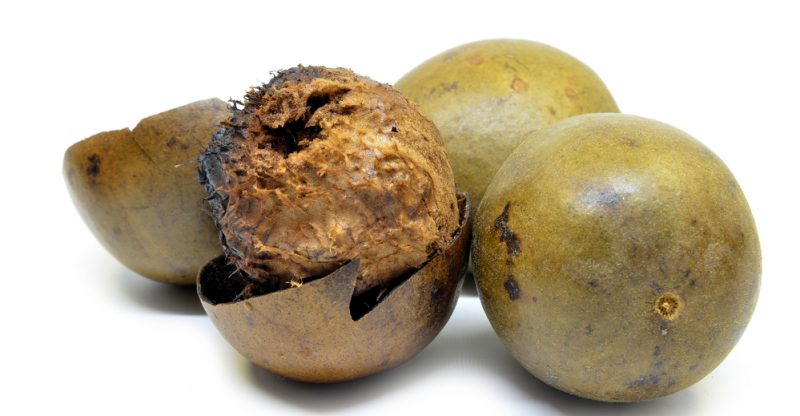What Is Monk Fruit?
Excess consumption of sugar is quite a challenge for many, and it causes a number of terrible health conditions. Do you have a sweet tooth? Have you had issues controlling your sugar intake? Instead of causing damage to your health, why not consume natural sweeteners which are sweeter and healthier than sugar? This, with many other reasons, is why we introduce monk fruit to you. Monk fruit has some other names such as Luo Han Guo, Buddha fruit, and longevity fruit. It is usually found in China and Thailand, where for centuries, they have used it in treating various diseases. Monk fruit also serves as a food additive and an artificial sweetener. It contains high amounts of glucose and fructose, and derives its sweetness from the glycosides content in its flesh. What`s more? Monk fruit contains antioxidants and loads of organic compounds that make it super nutritious. Before we discuss the health benefits of monk fruit, let`s take a look at its components.
Monk Fruit Components
What does monk fruit contain that makes it so nutritious? Are you ready? Leggo!
Kaempferol
Kaempferol is a flavonoid which possesses potent antioxidant and antimicrobial effects. Monk fruit`s kaempferol content is what makes it an antimicrobial and antioxidant fruit.
Vitamin C
Monk fruit`s vitamin C content decreases histamine in the blood and maintains collagen. This makes monk fruit effective at fighting cancer and maintaining healthy skin.
Triterpene Glycosides
These are compounds that repress the growth of tumor cells.
Cucurbitacins
These compounds have anti-inflammatory effects, so they help slow down aging, protect the heart, and even reduce the risk of obesity.
Polysaccharide Fibers
Polysaccharide fibers aid the reduction of cholesterol levels.
Mogrosides I-V
Mogrosides are antioxidants that decrease blood vessel permeability, prevent histamine release from mast cells, and hinder inflammatory damage. Here is a breakdown of various forms of mogrosides:
- Mogroside IV which increases tumor suppressor gene p53 and decreases MMP-9
- 11-oxo-mogroside V which hinders ROS and DNA oxidative damage
- Mogroside V which enhances apoptosis and represses angiogenesis
- Mogroside IIIE aids pulmonary fibrosis
13 Health Benefits of Monk Fruit
Combats Obesity
Excessive consumption of processed sugar could cause various diseases. Monk fruit contains natural sweeteners that enhance metabolism. Also, with this fruit, you can rest assured that you are not taking in too many calories. Obesity is definitely nothing to worry about with monk fruit.
It Is Antimicrobial
Monk fruit has some antimicrobial qualities, which is why it helps maintain a healthy bacterial level. Monk fruit extracts combat streptococcus, candida, and treats gum diseases.
It Prevents Diabetes

Diabetes is a common monster in this generation. Virtually everyone is careful about their sugar levels. Fortunately, with sweeteners got from monk fruit, you wouldn`t have to combat blood sugar irregularities. These sweeteners actually prevent diabetes.
Relieves Allergy Symptoms
Negative reactions in the body cause mast cells to release certain chemicals into the body system. One of such chemicals is histamine. After its release, irritation, coughing, inflammation, and other forms of allergic reactions follow. Monk fruit extract stops the activities of mast cells, therefore it expels histamine, and treats allergies. What`s more? You can count on monk fruit extract to help you deal with asthma.
It Prevents and Treats Cancer
Monk fruit possesses anti-carcinogenic qualities, making it potent to prevent and treat various kinds of cancer. It particularly combats the growth of tumor on the breast and skin.
It Improves Cardiovascular Health
Monk fruit contains organic compounds that prevent cholesterol from oxidizing, hence it avoids the development of plaque in the blood vessels and arteries. This makes monk fruit absolutely reliable for reducing the risk of stroke and heart attack.
It Contains Antioxidants
A major reason monk fruit is called “longevity fruit” is the antioxidant properties it possesses. Regular consumption of monk fruit helps your body build its defense system to fight free radicals and diseases.
It Is Antifibrotic
Ever heard of pulmonary fibrosis? It is a condition in which mars the proper functioning of the lungs. Monk fruit contains mogroside IIIE, an antifibrotic element which regulates inflammation and normalizes cellular matrix deposition.
It Protects the Liver
Liver inflammation can be quite a challenge; it slows down bile flow and negatively affects cholesterol excretion, fat metabolism, and the effectiveness of medications. The disruption of bile acid metabolism, which is an outcome of liver inflammation, leads to fatty liver disease, diabetes, and cardiovascular diseases.
Where does monk fruit come in? Its mogoroside content breaks down cholesterol and prevents oxidative damage of the liver.
It Reduces Inflammation
The traditional Chinese medical practitioners considered monk fruit a cooling agent; they used it in various medicines to treat fever, stroke, joint inflammation, and many other health conditions.
It Has Expectorant Properties
Monk fruit combats respiratory conditions such as colds and coughs. It relieves sore throat, breaks phlegm in the throat and lungs, and clears inflammation to relieve sore throats.
It Combats Fatigue

Monk fruit boosts energy levels, as a result of the nutrients it contains. Its antioxidant property particularly helps reduce fatigue and strengthens the body.
It Eases Heat-Related Conditions
Monk fruit relieves heat-aggravated conditions, due to its anti-inflammatory property. Chinese herbalists make tea from boiled monk fruit and administer it to people who suffer sunburn and fever. This gives them some cooling effect.
Tips for Selecting Monk Fruit Extract
You can find monk fruit extracts online and in health stores. The concentration of the extracts and number of mogrosides it contains determine its sweetness. Mogrosides are ranked on a sweetness scale of 1-5, 5 being the sweetest, and possessing the best health benefits.
Also, because some manufacturers modify the sweetness by adding other ingredients, always check the list of ingredients for additives when buying monk fruit sweeteners. Be sure the product is free of molasses, dextrose and sugar alcohols.
How to Use Monk Fruit
There are a number of foods and drinks you can sweeten, using monk fruit sweeteners. Here are some of them:
- yogurt
- frostings
- smoothies
- coffee
- tea
- lemonade
- sauces
- salad dressings
- oatmeal
Monk Fruit Allergies
There are rare cases of monk fruit allergies. For the few that occur, they may be as a result of allergic reactions to other fruits in the gourd family which monk fruit belongs. So people who are allergic to squash, cucumbers, melons, and pumpkin are likely to be allergic to monk fruit. Here are common signs of allergic reaction to monk fruit:
- swollen tongue
- wheezing
- stomach pain
- vomiting
- dizziness
- rapid or weak pulse
- difficulty breathing
- hives or rash
- overeating
- gas and bloating as a result of added sugar alcohols such as erythritol
Downsides of Monk Fruit
Availability and Cost
It`s quite uneasy to grow monk fruit, and expensive to buy it. This makes it scarce.
Its Unusual Taste
Monk fruit sweeteners have a different taste from sugar, and some persons consider it unusual, or even unpleasant.
Presence of other Ingredients
Unfortunately, there are monk fruit sweeteners that are mixed with other sugars such as dextrose and maltodextrin, for the sake of taste balance. This has some negative effects on its nutrition profile.
Now That You Know…
Monk fruit is quite beneficial in many ways. Now that you know how beneficial it is, and what to look out for when selecting it as a sweetener, you`ve got all you need to add some nutrients to your body system.




